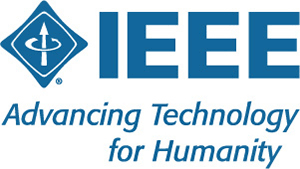Conference venue
Krakow was first mentioned in the year 965 as a rich burg city, situated at the crossing of trade routes and surrounded by woods. In 1138, Krakow Castle became more important as the official home of the highest Duke. Since 1320, the Cathedral has been witness to coronation ceremonies occurring over the following five centuries. In 1364, Kazimierz the Great founded the Krakow Academy, which was the origin of the later Jagiellonian University. In the Jagiellonian epoch which lasted for the next 200 years, Krakow with Europe's biggest market square became the capital of a monarchy spreading over territories from the Baltic to the Black Sea. The royal court played an important role in supporting artistic and cultural life. Outstanding humanists, scientists and artists came to Krakow from Italy, Germany and other countries.
Today, Krakow is Poland's second academic center with over 200,000 students, and a very dynamic scientific milieu. It houses the National Science Centre, which is a government executive agency set up to fund basic research. Krakow is home to many artists of worldwide reputation and hosts a vast number of artistic events. Having about 300 restaurants, pubs and cafes within the down town area, Krakow is known as the main destination of gourmet tourism in Poland. The social programme will include visits to some of these sites.
 AGH University of Science and Technology established on 20th October 1919, until 1949 known as the Academy of Mining, founded after long-lasting endeavours which had started in 1782, the year when the Ore Commission was established, has been continuing the traditions of the Academy of Mining in Kielce (1816-1827), inaugurated by StanisławStaszic. The University, being a technical school, serves science and industry through educating students, by development of its academic staff, as well as through research and development. The University cherishes its traditions and educates its students to be honest and responsible people both at work, and as members of the society, according to its motto: "Laborecreata, labori et scientiae servio" (Created in labour, I serve labour and science.)
AGH University of Science and Technology established on 20th October 1919, until 1949 known as the Academy of Mining, founded after long-lasting endeavours which had started in 1782, the year when the Ore Commission was established, has been continuing the traditions of the Academy of Mining in Kielce (1816-1827), inaugurated by StanisławStaszic. The University, being a technical school, serves science and industry through educating students, by development of its academic staff, as well as through research and development. The University cherishes its traditions and educates its students to be honest and responsible people both at work, and as members of the society, according to its motto: "Laborecreata, labori et scientiae servio" (Created in labour, I serve labour and science.)
Currently the AGH-UST is listed as second Polish University on the list of the 500 World best universities. The supercomputer Zeus - Cluster Platform is listed as the first Polish high-performance computer on the list of the Top 500 Supercomputer Sites. The AGH-UST serves science, the economy and society through educating students and the development of scientific and research staff, as well as conducting scientific research. The number of branches of science is 50, in 200 separate specializations including biomedical engineering.






